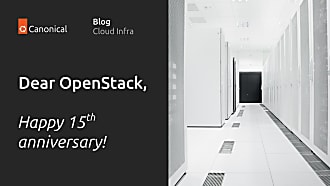Canonical
on 25 October 2018
Ubuntu Advantage successfully passes MSPCV cloud certification process

Canonical is pleased to share that it’s TechOps team has successfully completed the MSP Cloud Verify Program (MSPCV) certification process which recognises the quality of companies offering cloud and/or managed services. The MSPCV, conducted by the MSPAlliance, is based on the Unified Certification Standard (UCS) for Cloud and Managed Service Providers and developed by the International Association of Cloud and Managed Service Providers. It is the oldest certification program in this field and is a testament to the high standard that Canonical’s team provides to customers every day, in every region of the world.
The TechOps team (formerly STS) at Canonical is responsible for delivering the Ubuntu Advantage commercial support programme. Ubuntu Advantage features a selection of packages, depending on the customer needs, including popular services such as Livepatch, Landscape, Extended Security Maintenance regardless of whether across OpenStack, public clouds or Kubernetes.
“The MSPCV certification is a rigorous process that benchmarks and verifies the quality of the company providing cloud and/or managed services,” said Celia Weaver, MSPAlliance president. “We are very proud to have Canonical as a member of this elite community of MSPs and cloud providers.”
As well as receiving this certification recognising the rigour and quality of Canonical’s commercial support, Ubuntu Advantage is also used day in day out by some of the world’s leading companies across a variety of sectors including Walmart, Cisco, eBay, AT&T and Bloomberg.
“Our customers don’t just want a vendor, they want a partner. That is why we are excited about completing the MSPCV examination to give our customers the transparency they have come to expect from Canonical and Ubuntu Advantage” says Peter Graner, VP TechOps at Canonical.
The UCS consists of 10 control objectives and underlying controls that constitute crucial building blocks of a successful managed services (and cloud computing) practice. Once the provider’s organisation has completed all MSPCV documentation on all applicable control objectives (with the assistance of MSPAlliance’s readiness assessments, gap analysis, helpful templates and consulting) the results are then examined by an independent third-party accounting firm for verification and signing of a public facing report.
As with any other certification of this type, the MSPCV certification must be renewed annually. The MSPCV was the first certification created specifically for the managed services and cloud industry. The MSPCV has been reviewed by governmental agencies and regulatory bodies across the globe and is used and accepted in 5 continents around the world.



